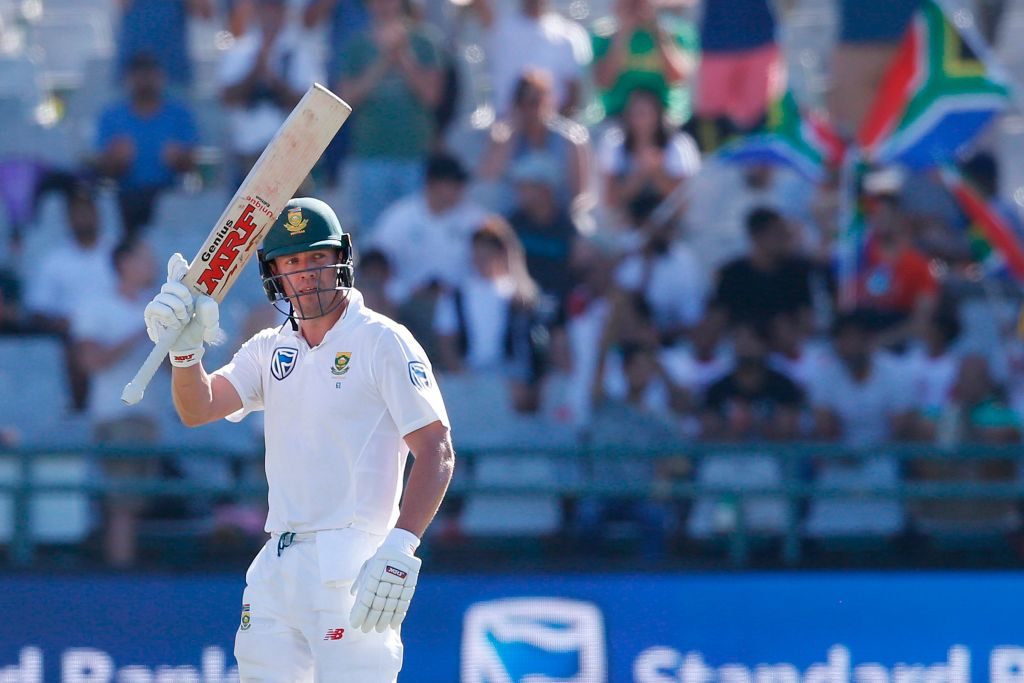When you’re facing a world-class fast bowler, you only have your bat and instinct, writes GRAEME POLLOCK in SA Cricket Magazine.
When I was four years old I was playing backyard cricket for the first time with my mom and my older brother, Peter. When it was my turn to bat I was very excited and I stood in front of the apple crate stumps and, instinctively, I took up a left-handed stance. In those days there were almost no left-handed batsmen around so my mother was perturbed by this. She walked over to me and turned me around into the ‘correct’ stance – as a right-hander.
By the time she got back to the wicket ready to bowl to me I had turned around and was facing her in a left-handed stance again. I just didn’t feel comfortable standing right-handed, even though I did everything else right-handed. She shook her head, dropped the ball and walked over to me and turned me the right way around, then went back to the bowling crease, but Peter was laughing his head off as I had turned around again and was standing left-handed waiting for Mom to bowl. After a few more attempts she gave up and started bowling to me.
Somehow, deep inside, I trusted my instinct and did what I thought was right for me. Trusting your instinct is the most important skill for a batsman because you have less than half a second to think about what you’re going to do with each ball you face.
Sometimes an ‘instinctive game’ is easier than a sport like golf, where you have all the time in the world to think about what you want to do … and that becomes a battle of the mind against the body. The best batsmen trust their instinct, and Barry Richards and AB de Villiers are prime examples of great attacking South African batsmen who do this when facing the best bowlers in the world.
If you allow yourself to play instinctively you start to find that your batting strokes – defensive and attacking – somehow seem to happen naturally. If you have practised well and have thought your game plan through, your instinct should pay off for you.
Batting can be cruel because all it takes is one small error of judgement, a brilliant catch or the slightest extra deviation off the pitch to cost you your wicket, and it’s this ‘fear’ that causes many batsmen to overthink things as they are worried about being criticised for getting out playing a ‘bad’ shot. However, overthinking things when you’re at the crease robs you of that vital split second of reaction time that can make all the difference. Trusting your instinct pays off 99 times out of a 100, but on that odd occasion when batsmen play a bad stroke or are unlucky with the bounce of the ball and lose their wicket, fans and commentators shouldn’t be too quick to criticise.
Batsmen today are lucky because modern bats are so forgiving that mis-hits often fly for six, whereas when I was playing, a mis-hit wouldn’t clear the inner ring of fielders. Our bats today encourage batsmen to play instinctively because they have
a greater chance of getting away with mis-hits, and I’m sure this is a major factor in batsmen scoring so much quicker and averaging higher than in previous generations.
Jacques Kallis told me recently he feels cricket’s authorities need to do something about the ball, instead of trying to control how bats are made. He pointed out how the pressure of tennis balls at venues such as Wimbledon used to create a major imbalance in the sport, as the guys with big serves were winning all the time. Jacques’ suggestion is that the cricket ball should be reduced in size – or perhaps even ‘pressurised’ in some way – so that it doesn’t carry 60, 80 or 100m so easily. Batsmen would then have to hit a really good shot to clear the boundary.
I have no interest in watching a game and seeing 60 sixes being smashed without any effort – that just becomes boring. I’d rather go to a baseball match.
Hitting a six used to be something that took great skill and a degree of risk, and it would excite the crowd. I’m all in favour of hitting sixes, but I’d just like to see the batsmen earn them by ensuring there is a more even contest between bat and ball. After all, that is when the best cricket is played.
Photo: Gianluigi Guercia/Getty Images
– This article first appeared in SA Cricket magazine issue 143







